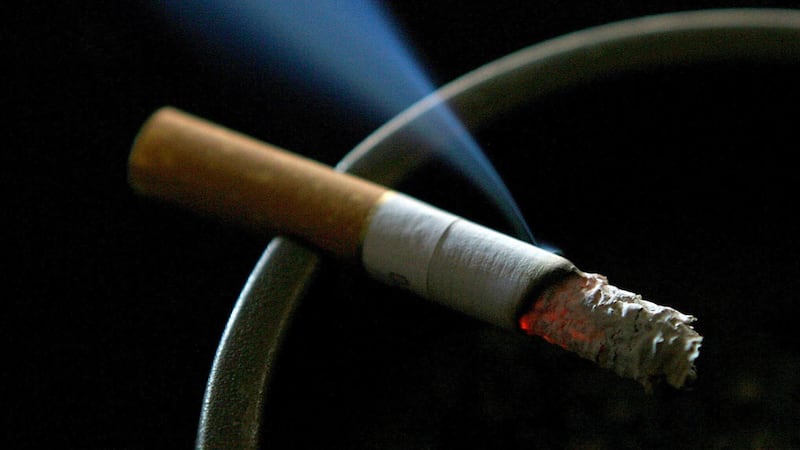Women who smoke during pregnancy are 2.6 times more likely to give birth prematurely compared with non-smokers – more than double the previous estimate, new research suggests.
The University of Cambridge study also found smoking meant the baby was four times more likely to be small for its gestational age, putting it at risk of potentially serious complications including breathing difficulties and infections.
There was no evidence caffeine intake was linked to negative outcomes.
Professor Gordon Smith, head of the department of obstetrics and gynaecology at the University of Cambridge, said: “We’ve known for a long time that smoking during pregnancy is not good for the baby, but our study shows that it’s potentially much worse than previously thought.
“It puts the baby at risk of potentially serious complications from growing too slowly in the womb or from being born too soon.
“We hope this knowledge will help encourage pregnant mums and women planning pregnancy to access smoking-cessation services.
“Pregnancy is a key time when women quit and if they can remain tobacco free after the birth there are lifelong benefits for them and their child.”
The NHS recommends that women who are pregnant should stop smoking and limit their caffeine intake because of the risk of complications to the baby.
When the toxins from smoke travel through the bloodstream to the baby, it struggles for oxygen.
When this happens it affects their development, and is linked to premature birth and low birthweight, though it has also been linked to a reduced risk of pre-eclampsia (high blood pressure during pregnancy).

High caffeine intake has also been linked to lower birthweight and possibly foetal growth restriction.
But caffeine can be more difficult to avoid than cigarette smoke as, as well as being found in coffee and tea, it can be found in chocolate, energy drinks, soft drinks and certain medications.
Researchers say studies looking at the links between smoking and caffeine and their impact on pregnancy tend to rely on people reporting how much they have consumed, or exposure to smoke, data which is not always reliable.
Blood tests for metabolites – chemical by-products created when substances such as tobacco and caffeine are processed in the body – might be more accurate.
Researchers at Cambridge and the Rosie Hospital, part of Cambridge University Hospitals NHS Foundation Trust, recruited more than 4,200 women who attended the hospital between 2008 and 2012 as part of the Pregnancy Outcome Prediction (POP) study.
The team analysed blood samples taken from a group of these women four times during their pregnancies.
To assess exposure to cigarette smoke, the team looked at levels of cotinine, which can be detected in blood, urine and saliva.
Only two out of three women with detectable levels of cotinine in every blood sample were self-reported smokers, showing that this measure is a more objective way of assessing smoking behaviour, researchers say.
A total of 914 women were included in the smoking analysis.
Of these, 78.6% were classified as having no exposure to smoking while pregnant, 11.7% as having some exposure and 9.7% as having consistent exposure.
The study, published in the International Journal of Epidemiology, found that compared with those without smoke exposure while pregnant, those with consistent exposure were 2.6 times more likely to experience spontaneous preterm birth.
According to the researchers, this is more than double the previous estimate of 1.27 from an analysis of multiple studies.
They were also 4.1 times as likely to experience foetal growth restriction.
Additionally, babies born to smokers were found to be on average 387g lighter than babies born to non-smokers – that is, more than 10% smaller than the weight of an average newborn.
This increases the risk that the baby will have a low birth weight (2.5kg or less), which in turn is linked to an increased risk of developmental problems as well as poorer health in later life.
Unlike in previous studies, the team found no evidence that smoking reduced the risk of pre-eclampsia.
To assess caffeine intake, researchers looked for the metabolite paraxanthine in 915 women.
Of these women, 12.8% had low levels of paraxanthine throughout pregnancy (suggesting low caffeine intake), 74.0% had moderate levels and 13.2% had high levels.
The researchers say there was little evidence of an association between caffeine intake and any of the negative outcomes.
However, because the researchers did not study all possible adverse outcomes of pregnancy, and some of the outcomes not studied – such as stillbirth – have been associated with higher caffeine intake in previous studies, they cannot interpret the findings as indicating that current recommendations around caffeine intake should be changed.
The work was supported by the National Institute for Health and Care Research (NIHR), Cambridge Biomedical Research Centre and the Medical Research Council.








